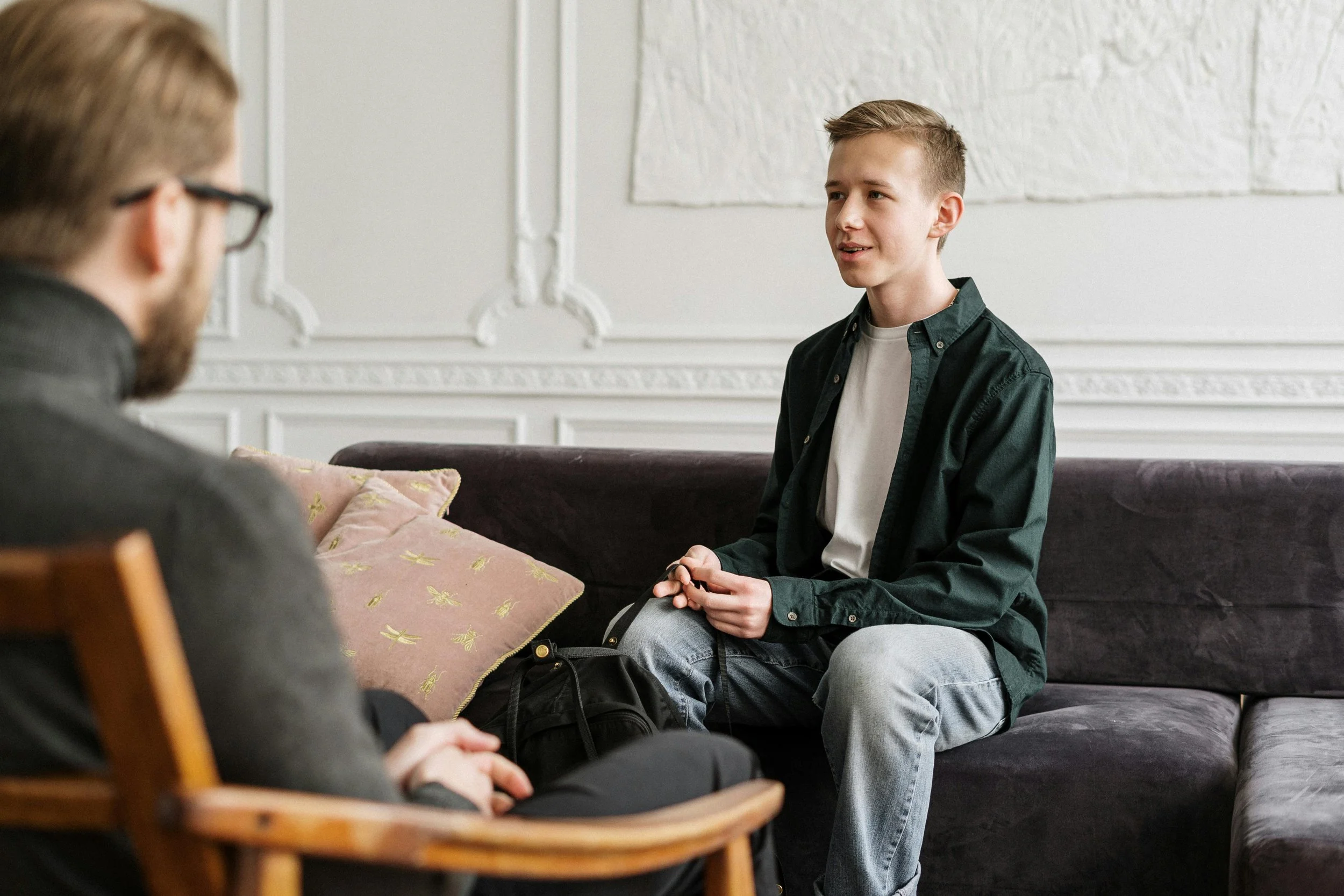How to Counsel Young People: A Practical Guide for Parents, Teachers & Mentors
Adolescence is a pivotal and often turbulent stage of life. It’s when identity begins to form, emotions intensify, and social pressure peaks. With the added impact of modern stressors like social media, academic expectations, and an uncertain world, many teens face emotional challenges that require more than just casual support. As trusted adults—parents, teachers, mentors, coaches—we’re often left asking: How to Counsel Youth? How do we support them in ways that are empathetic, effective, and empowering?
At Wellman Psychology, our Teen Counselling Chicago experts understand that navigating the emotional world of a teenager isn’t easy. But with the right tools, you can build meaningful relationships that guide them toward healing and growth. This practical guide walks you through the foundational strategies that can make a real difference in the lives of young people.
How to Counsel Youth?
Build Trust and Rapport
Trust is the bedrock of any effective relationship with a teen. Without it, you may only see surface-level behavior and never get to the root of what’s really going on. Trust-building takes time and consistency. Start by acknowledging their thoughts and feelings—even if you disagree. Approach conversations with warmth, curiosity, and patience rather than judgment.
Use small, everyday interactions to create a connection. Ask about their interests, remember important events in their life, and show that you’re genuinely paying attention. And above all, be consistent. When teens know they can count on you, they're more likely to confide in you when it matters most.
Practice Deep Listening
Teens are incredibly perceptive. They can tell when someone is just waiting to talk versus genuinely listening. Deep listening means setting aside distractions and being fully present—mentally, emotionally, and physically.
Use your body to show you’re engaged: lean in slightly, maintain appropriate eye contact, and face them directly. Use your mind to stay focused on their words rather than rehearsing your response. Occasionally, grounding yourself with a deep breath can help you stay centered in the moment.
When you practice deep listening, you’re doing more than hearing their words—you’re communicating that their story matters. And that, in itself, can be incredibly healing.
Ask Skillful Questions
The way we ask questions can either shut down a teen or open the door to meaningful dialogue.
Open-ended questions encourage fuller responses and invite introspection. For example:
“How did you feel after that happened?” or “What do you think would help you handle that situation differently next time?”Close-ended questions (e.g., “Are you upset?”) may be useful with more guarded teens, helping to ease them into a conversation.
Socratic questions dig deeper and promote critical thinking.
“What makes you believe that’s true?” or “Could there be another explanation?”
Avoid firing off too many questions in a row. Balance your inquiries with affirmations, reflective listening, and empathetic statements. Your tone and timing matter just as much as the question itself.
Explain Confidentiality
One major barrier that prevents teens from opening up is fear—fear that what they share will be repeated to their parents, teachers, or peers. That’s why explaining confidentiality upfront is crucial.
Let them know:
What information you can and can’t keep private
That your goal is to support—not punish—them
That safety (theirs and others') is the only exception
Clarifying this early builds trust and helps the teen feel secure enough to be honest.
Incorporate Self-Disclosure
Intentional self-disclosure can humanize you in the eyes of a teen. Sharing brief stories about similar challenges or feelings you’ve faced helps them feel less alone, and shows that emotional struggles are a normal part of life.
Be careful not to make the conversation about you. Keep the focus on their experience and use your story only when it serves to validate or support their emotional process.
When modeled effectively, self-disclosure teaches teens a key relational skill: vulnerability as a path to connection.
Use Group Work When Appropriate
Not all teens are comfortable with one-on-one dialogue. In fact, some open up more easily in group settings where they feel less spotlighted and more understood by peers going through similar experiences.
Group counseling has been shown to be effective in addressing:
Academic struggles
Grief and loss
Identity issues
Career decision-making
It also provides a sense of shared humanity and community, which can be deeply healing for adolescents feeling isolated or misunderstood.
Evaluate Basic Needs First
Before diving into emotional or psychological work, make sure the teen’s basic needs are being met. Use Maslow’s Hierarchy of Needs as a mental checklist:
Does the teen have food security?
Do they feel physically and emotionally safe at home or school?
Are they experiencing trauma or instability (e.g., domestic violence, financial stress)?
A teen dealing with unmet survival needs will be unable to engage meaningfully in therapy or mentoring. Addressing these foundational areas first is essential.
Use Creative and Experiential Approaches
Not every teen processes emotions verbally. Some express themselves more freely through creative or experiential therapy methods like:
Art or music therapy
Journaling
Mindfulness or yoga
Outdoor adventures
Movement or sports
Guided imagery
These non-verbal techniques provide alternate avenues for emotional expression and healing, especially for teens who find traditional talk therapy intimidating or inaccessible.
How Does Counseling Help the Youth?
Provides a Safe Space
In a world where teens often feel criticized or misunderstood, counseling offers a neutral, accepting environment. Here, they can speak freely without fear of judgment.
Supports Mental and Emotional Development
Counseling helps teens navigate emotions, process trauma, and learn how to regulate thoughts and behaviors. These skills foster long-term resilience and emotional intelligence.
Prevents Crisis
Early intervention can mean the difference between a manageable challenge and a full-blown crisis. Counseling provides proactive support, guiding teens before situations escalate.
Strengthens Relationships
When teens feel heard and supported, they’re better equipped to form healthier connections with parents, peers, and siblings. Family therapy can also repair broken trust and improve communication at home.
Builds Life Skills
Through counseling, teens learn how to:
Set and achieve goals
Communicate assertively
Manage stress and anxiety
Make thoughtful decisions
These tools support both personal growth and future success in adulthood.
Bottom Line
Counseling youth isn’t just for therapists—it’s for anyone who cares deeply about a young person’s well-being. By listening deeply, asking thoughtful questions, and meeting them where they are, we can help teens feel seen, heard, and empowered.
At Wellman Psychology, our experienced team of clinicians specializes in adolescent care, combining evidence-based therapies with compassion and creativity. We work not just with teens, but with families, schools, and communities to ensure young people have the support they need to thrive.
Are You Worried About A Teen In Your Life? Don’t Wait.
Reach out to Wellman Psychology and speak with a licensed Teen Counselling Chicago professional. We offer personalized, confidential support tailored to your teen’s unique needs. Together, we can help your child navigate life’s challenges and discover their inner strength.
Let us walk with you on this important journey, because no young person should face it alone. Get in touch with us now!
Feel free to check out our social media links below:
Find out more articles that can help you below:







